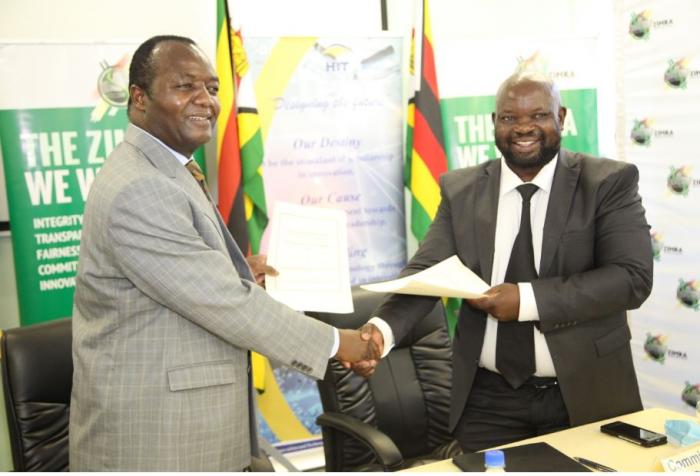The Zimbabwe Revenue Authority (ZIMRA) signed a Memorandum of Understanding with the Harare Institute of Technology (HIT)) to enhance domestic resource mobilisation.
The prime objectives of the MoU are to provide a broad base for co-operation with the intention of mobilising domestic revenue through the use of their respective personnel, facilities, electronics and resources to unearth economic and business activities being conducted within the economy.
The agreement also involves collaboration in the development of local software solutions to enhance domestic resource mobilisation for the economic development of Zimbabwe.
The two parties agreed to exchange information concerning strategies for revenue mobilisation and collection with a view to developing a common understanding of challenges being faced. This will include information on sector specific practices on tax levying and collection, together with implementation of special projects in different sectors to assess and implement tax compliance, share information on the formulation and implementation of compliance programmes with special emphasis on the use of technological and electronic systems.
ZIMRA and HIT shall provide each other with practical, technical and theoretical training on revenue mobilisation and development of software solutions in domestic resource mobilisation to enhance the capacity of ZIMRA, with an overall aim of improving its service delivery. They also agreed to establish a Joint Technical committee to oversee the implementation and administration of this MoU.
ZIMRA Acting Commissioner General, Mr Rameck Masaire applauded both parties for working tirelessly to produce this MoU.
“I am very cognisant about the process that ZIMRA and HIT went through so as to balance the interest of both parties and bear transformative ideas whose positive impact will be felt across the economy and beyond,” he said.
Speaking at the signing ceremony, the HIT Vice Chancellor Dr Eng. Q.C Kanhukamwe said the partnership is a convergence of minds and is pivotal in making breakthroughs in terms of resource mobilization and industrialisation.
“We hope that through this partnership we can achieve “Vision 2030” and continuously look ahead and beyond 2030. Our thrust as HIT is encapsulated in our mandate, that is development, incubation, transferring of and commercialization of technology for rapid national industrialisation,” he said.

